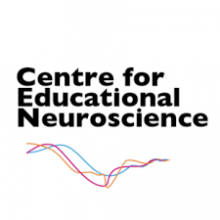Cognition, Genes and Developmental Variability Lab
Our primary research interests relate to cognitive development in both typical development and neurodevelopmental disordered groups, with a specific emphasis on spatial cognition.
Our aim
The broad aim of the Cognition, Genes and Developmental Variability (CoGDev) Lab is to characterise both typical and atypical development of cognitive functions within a neuroconstructivist framework (i.e. functions are explored within the context of the developing brain).
This involves analytical investigation of spatial performance in both small-scale (e.g. spatial ability, perception, mental imagery, drawing and construction abilities) and large-scale space (navigation and route learning abilities). We are also interested in the intersection between spatial ability and other abilities, such as motor function. Our most recent research interest relates to the relationship between spatial thinking and science, technology, engineering and maths (STEM) in primary school age children.
We have published work on the performance of typically developing children, typical adults, individuals with autism, Down syndrome, Williams syndrome and cerebral palsy.
Spatial reasoning platform: Our research on spatial reasoning is centred on the relationship between spatial reasoning and science, technology, engineering, and mathematics (STEM) subjects in early years and primary school children, and the translation of that research into practice. Our spatial reasoning platform showcases relevant projects and resources for practitioners, with a specific focus on the relationship between spatial reasoning and mathematics. We hope you will find these useful to help you learn more about the value of spatial reasoning and how to promote the use of these skills in your setting or classroom.
View our spatial reasoning platform
Spatial reasoning toolkit: In collaboration with the Early Childhood Maths Group, we summarise recent international research into the development of spatial reasoning from birth to seven years of age and have developed this into a trajectory of early learning experiences. The toolkit, which also includes videos, posters and spatial book lists, aims to clarify the mathematics in early spatial experiences, suggesting what to emphasise in order to support the development of children’s spatial reasoning in sensitive, appropriate and playful ways.




















